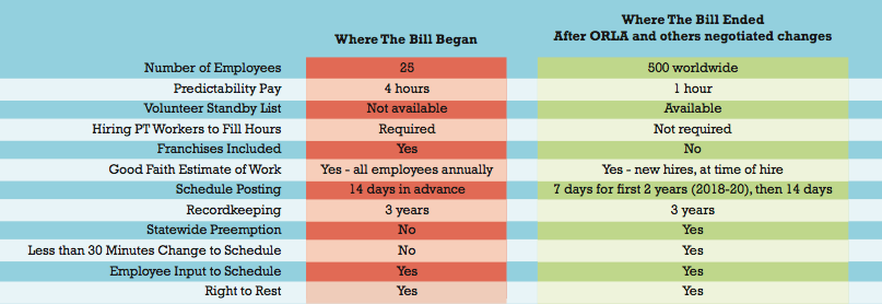OREGON'S SCHEDULING LAW
ORLA and members of other business groups worked together to negotiate substantial, positive changes to SB 828 (2017 Session), the restrictive scheduling bill, before it was finally passed and signed by the Governor. Restaurants and lodging properties who would have been included initially were ultimately excluded and those still affected have a much better, workable law. The real-life stories from our members about how this would impact them and the strength of our association helped make these changes.




